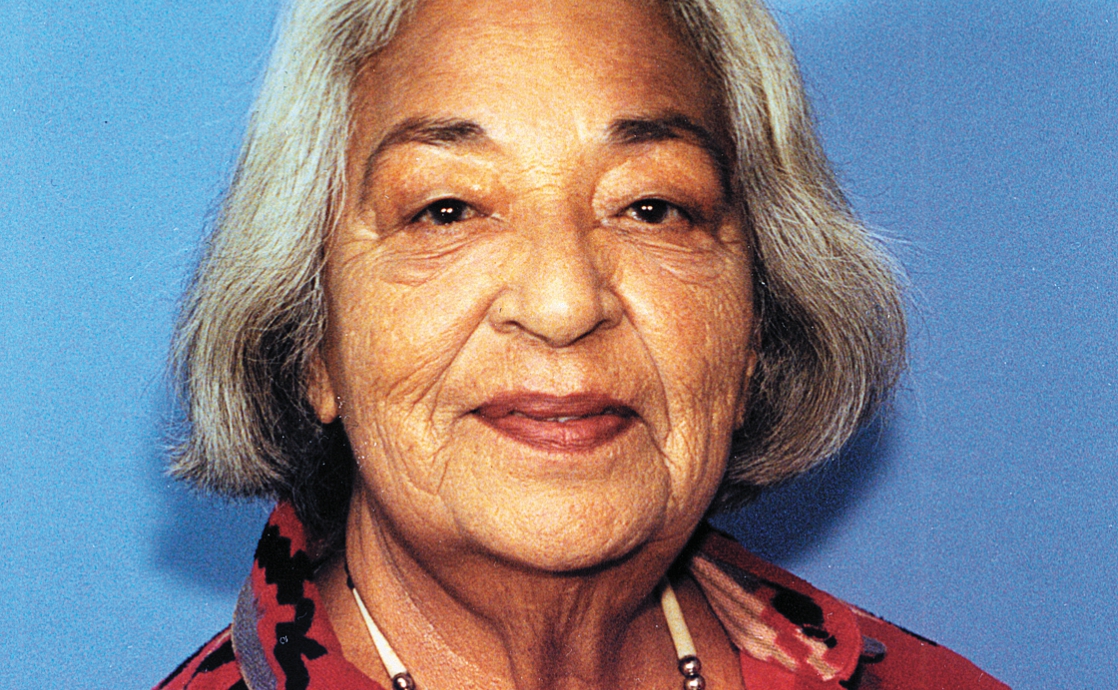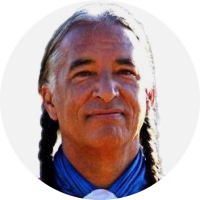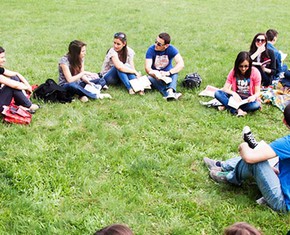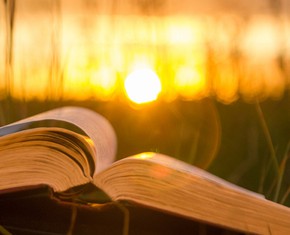The views expressed in our content reflect individual perspectives and do not represent the authoritative views of the Baha'i Faith.
In this installment of our ongoing series on the Indigenous holy messengers, we’ll explore how one famed Indigenous woman, Patricia Locke, found and embraced the teachings of the Baha’i Faith.
RELATED: Patricia Locke on Native American Manifestations of God
Q: Kevin, “conversion stories” have always interested me. These spiritual experiences, after all, dramatically change people’s lives, and we can learn a great deal from them. In your autobiography Arising you tell the remarkable story about how your mother — the late, great Patricia Locke (1928–2001) — became a Baha’i:
My mother had spent much of her adult life working in political activism. Though she and her colleagues had achieved victories to improve educational access and cultural preservation for Indigenous people, she abhorred the negativity and divisiveness of politics, with its potential for corruption. Because the Baha’i teachings offered relief from the political corruption around the world and offered common-sense and progressive teachings, such as the equality of men and women, the eliminations of the extremes of wealth and poverty, and the dismantling of prejudices of all kinds, she was intellectually curious.
However, her negative encounters with Christianity had made her cautious when dealing with religion. As a child in Catholic boarding school, my mother disdained the restrictions placed on women within the Church and the persecution of Indigenous culture, including its spiritual practices, within the school. During her career, she had endeavored to create an awareness of and preserve North American Indigenous spiritual heritage, and she had worked tirelessly to dispel the prevailing view of Indigenous culture as satanic. She feared that the Faith was another organized religion that would ultimately oppress Indigenous people. …
We had many conversations in which I shared how the Faith affirms Indigenous spirituality. …
Of all the villages we visited in Bolivia and Peru, the small mountain community of Miskipampa held a significant place in my heart, especially for the profound impact its people had on my mother. … Many of these families were members of the Baha’i Faith. Though they were considered to be among the poorest Indigenous people materially, we regarded them as unbelievably wealthy because of the spirit of cooperation and love that pervaded their village. …
At the entrance of the village, we passed under an archway of woven branches. The entire village had arisen and come out to greet us at this early hour. The entire land was filled with the light of the brilliant flames of the candles they held. I was moved beyond words by their hospitality. My travel companions and I had entered a community of spiritual connection and unity. The moment we walked beneath that archway, we transitioned from being strangers to relatives of Miskipampa.
Each of the village members, as we approached them, looked in our eyes with the utmost tenderness and embraced us. They placed their left cheek on our right cheek and then their right cheek on our left. “Allah’u’abha,” they said. This greeting, used among the Baha’is of the world, means “God is most Glorious” in Arabic. We walked from village member to village member. Each person embraced us as family and lovingly greeted us with “Allah’u’abha.”
My mother, who [at that point] did not yet consider herself a Baha’i, began to reciprocate the loving greeting back to our hosts. “Allah’u’abha,” she replied after each embrace. “Allah’u’abha.” At the end of this long procession, this warm and phenomenal welcome, her association with the pure-hearted people of Miskipampa opened her own heart and mind more completely to the teachings of Baha’u’llah. That night, she gave her heart to Baha’u’llah, even though her official declaration occurred upon our return to the United States.
Kevin, when did this conversion take place, and can you think of a better word than “conversion” here?
A: Maybe “evolution” would be more apropos than “conversion.” Throughout her adult life, Patricia Locke worked actively for change within the existing system. But she began to recognize that the system as it now exists is irreparable — much like the proverbial Dutch boy who, clunking along in his wooden shoes, sees a leak in the dike and puts his finger in to stop the drip. Then more and more leaks appear that require all of his fingers, his nose, until finally he kicks off his wooden clunkers to stop more leaks with his feet. Then he realizes that the only solution is to build a new dike.
My mother had exhausted every conceivable method to bring relief to the insufferable plight of Indigenous people and recognized, in the consecration and dedication of the Miskipampa villagers, the power of Faith to transform and make anew the world. This quotation from the writings of Baha’u’llah exemplifies her new conviction:
Justice is, in this day, bewailing its plight, and Equity groaneth beneath the yoke of oppression. The thick clouds of tyranny have darkened the face of the earth, and enveloped its peoples. Through the movement of Our Pen of glory We have, at the bidding of the omnipotent Ordainer, breathed a new life into every human frame, and instilled into every word a fresh potency. All created things proclaim the evidences of this world-wide regeneration. This is the most great, the most joyful tidings imparted by the Pen of this wronged One to mankind. …
Every man of insight will, in this day, readily admit that the counsels which the Pen of this wronged One hath revealed constitute the supreme animating power for the advancement of the world and the exaltation of its peoples.
Q: Thank you, Kevin. Can you please tell us more about the Miskipampa? Did they have a tradition about their own Indigenous Messenger of God?
A: Miski Pampa — the “Sweet Plains” — is named after the pure, abundant spring waters that gush from the mountain and flow through the village and irrigate the crops and water and nourish the livestock, upon which the subsistence lifestyle of the villagers depends. Because of its natural bounty, this is an ancient oasis so remote from the non-Quechua world that it is inaccessible by motorized vehicles.
We met several aged Caminantes Antiguas (“Ancient Walkers”) in the village. Through dreams and visions during the lifetime of Baha’u’llah, those inspired souls arose to enjoin the people to cast aside the shackles of slavery and brutal colonization, to purify their motives, and rectify their lives so that their hearts and minds could hearken to Voice of God resounding over the earth. For many decades they traversed the ancient highways, painstakingly built to link all parts of the Inca empire in pre-colonial times. We were blessed to meet some of the last survivors of this enlightened, heroic movement.
Q: Any further details about this experience not mentioned in the passage from Arising quoted above?
A: We were hosted by one of Ancient Walkers whose family prepared a welcome feast, served on an embroidered cloth. I noticed that the cloth was spread over a coffin. I asked about this, and our host replied that he had ordered the coffin for himself since he realized that he was soon to depart this life – but when news reached him of our imminent visit, he decided to postpone his date with death in order meet us and provide hospitality because this ingathering of diverse kindreds from the north had been promised in the Ancient Walker traditions.
RELATED: Pressing on to Meet the Dawn: Patricia Locke
Q: Soon after your visit to the Miskipampa people, what impact did Patricia Locke’s embrace of the Baha’i Faith have on her life, short-term and long-term?
A: My mother soon became a very bold teacher and public exponent of the Baha’i Faith. She would always use quotes and references to Baha’u’llah in her public presentations, as if everyone should be familiar with them, as if they were common knowledge. Because of her stature and gravitas, no one would question her authority. Several family and friends became Baha’is through her.
Q: More is perhaps known of Patricia Locke’s contributions as a political and education activist. What contributions did Patricia Locke make that have somehow enriched and/or expanded Baha’i consciousness as it pertains to all things Indigenous?
A: She was an indefatigable promoter of justice throughout her life. That great Baha’i principle – justice for all – was her guiding star. She had such a dynamic persona and charisma that people were naturally drawn to her. Recently a random person in Mobridge shared that whenever he would see her in town he saw “a little goddess who had dominion over everything in her sight.”
Q: Was there any criticism and/or resistance to Patricia Locke’s strong position that the “myriad” Indigenous messengers of God be recognized and respected?
A: She had such conviction and assurance of this reality, based on her vast ancestral knowledge, that no one ever dared question her.
Q: What do you think she has to say to us today, in 2022?
A: We must live our lives with conviction, justice and love.
Q: Thank you, Kevin. It seems that your mother Patricia Locke was the very embodiment of these immortal words by Baha’u’llah: “The source of courage and power is the promotion of the Word of God, and steadfastness in His Love.”

















Comments
Sign in or create an account
Continue with Googleor